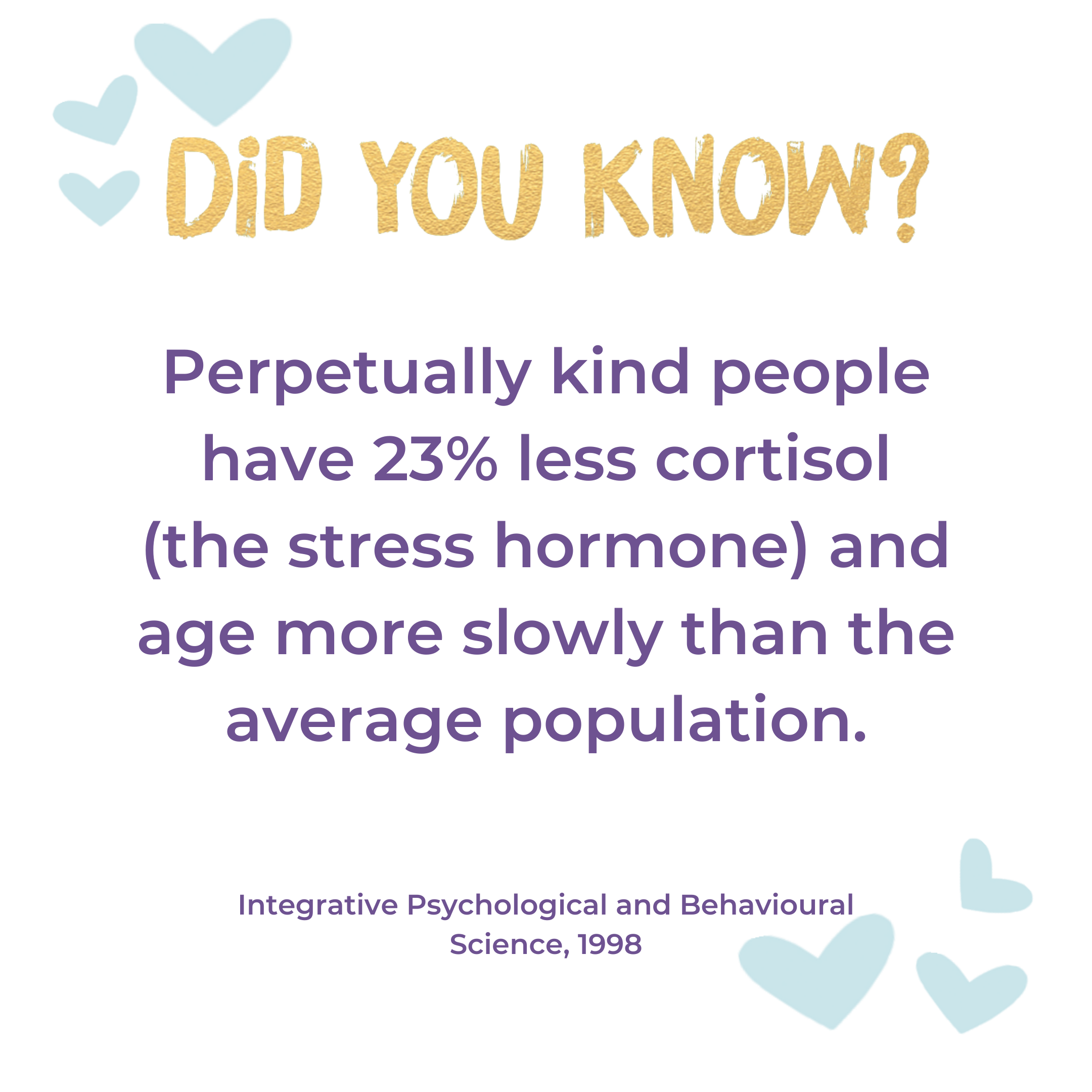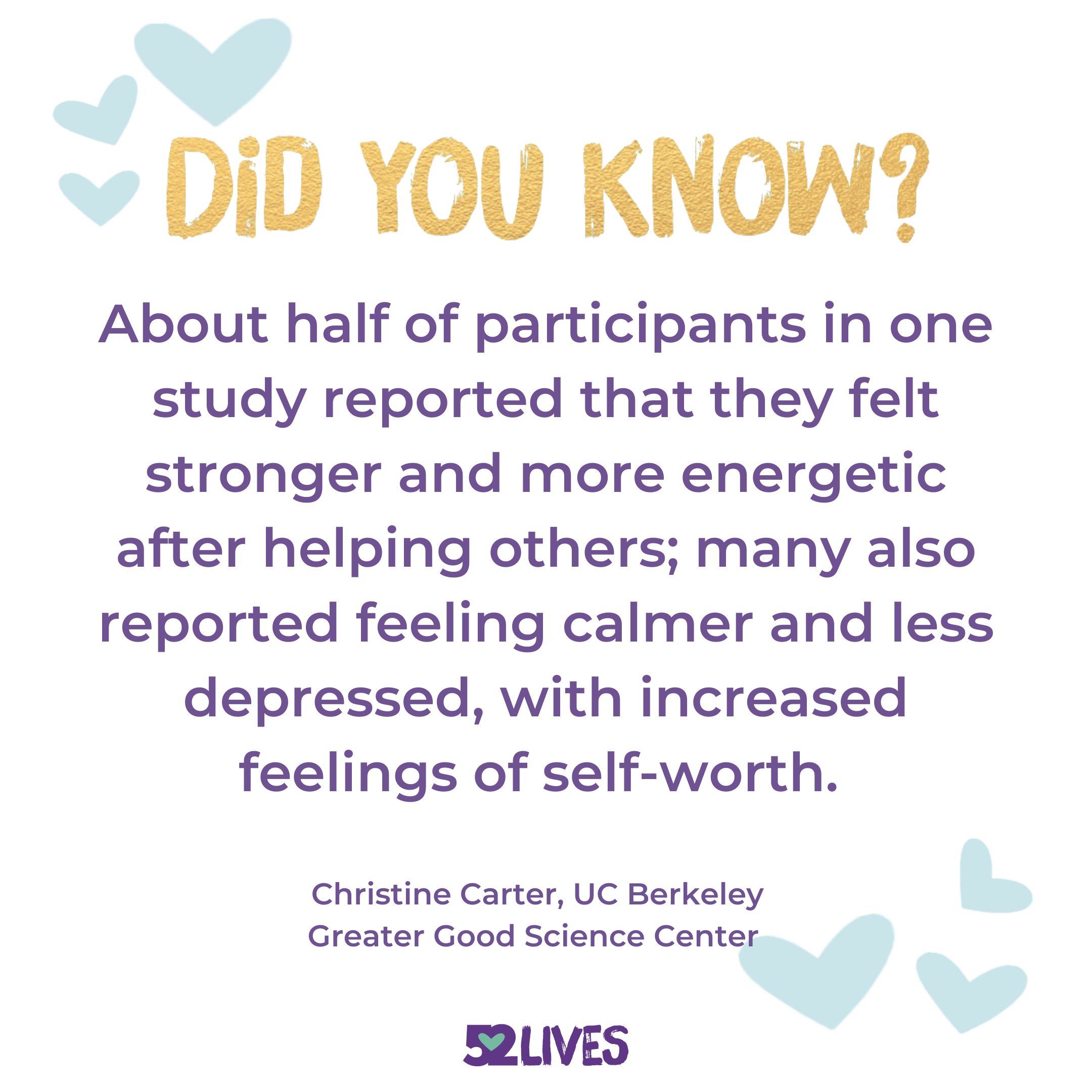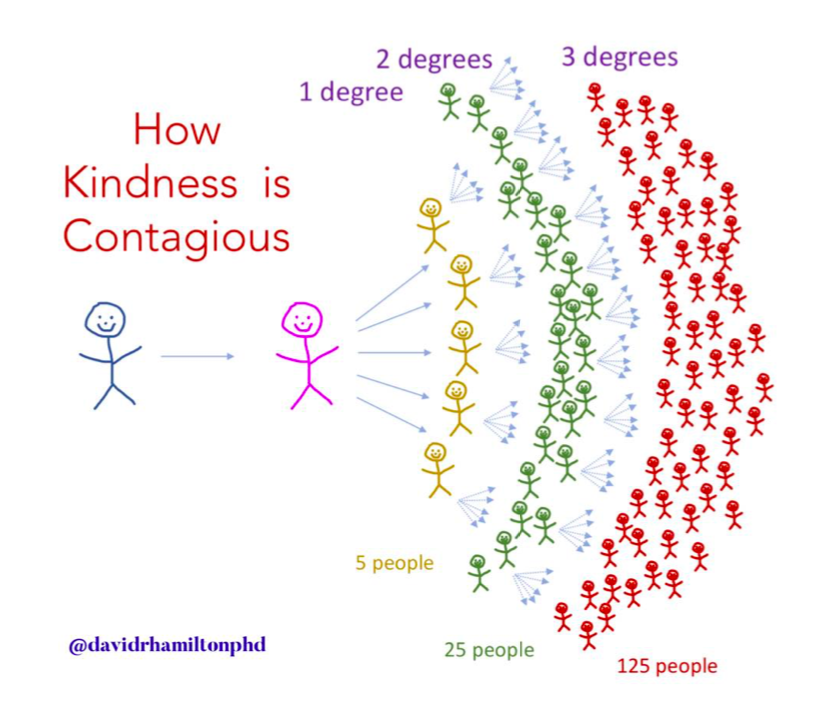Kind Science
At 52 Lives, we give people tangible help, but our philosophy goes much deeper. The most important thing we do is spread kindness, create a sense of community and let people know they are not alone. Because kindness is more than just a ‘nice thing to do’. It plays a crucial role in our well-being. Research has shown that kindness causes chemical changes in our body that improve our physical and mental health – and that's whether we’re giving kindness, receiving kindness or even just witnessing kindness. This means that everyone has the potential to benefit from the work we do - those receiving, those giving and even those just reading about what we do.

Kindness Can Help Us Feel Happier
When we experience kindness, a hormone called dopamine is released in our brain which gives us a feeling of elevation and lifts our mood - it’s often referred to as
‘Helper’s High’. This can help to reduce anxiety, alleviate depression and help us feel happier.
(Read the research)
Kindness is Good for the Heart
Have you noticed that when you are kind to someone, you feel good inside? Acts of kindness are often accompanied by a feeling of emotional warmth which in turn produces the hormone oxytocin in your body.

Oxytocin causes the release of a chemical called nitric oxide in blood vessels, which expands the blood vessels, reduces blood pressure and protects the heart. In this way, kindness is considered to be 'cardio-protective.'
(Read more)
Kindness Slows Ageing
Kindness has been shown to slow down the ageing process. Remarkable research found that oxytocin can reduce levels of free radicals and inflammation (two main culprits of ageing) in our cardiovascular system, which slows ageing at the source.
(Read more)
Kindness Improves Relationships
Kindness at its core is a gesture motivated by genuine, warm feelings for others. We tend to like people who show us kindness. This is because kindness reduces the emotional distance between two people and makes us feel more ‘bonded’. It’s true, we are genetically wired for kindness!

Our evolutionary ancestors had to learn to cooperate with one another. The stronger the emotional bonds within groups, the greater were the chances of survival and so ‘kindness genes’ were etched into the human genome. So today when we are kind to each other we feel a connection that strengthens our existing relationships and helps us to create new ones.
Kindness is Contagious
Just as a pebble creates waves when it is dropped in a pond, so acts of kindness ripple outwards, touching others’ lives and inspiring kindness everywhere the wave goes.
 When we are kind, we inspire others to be kind and studies show that it actually creates a ripple effect that spreads outwards to our friends’ friends’ friends – that’s an amazing three degrees of separation. This means that when you are kind to one person, that one act of kindness will positively affect up to 125 people!
When we are kind, we inspire others to be kind and studies show that it actually creates a ripple effect that spreads outwards to our friends’ friends’ friends – that’s an amazing three degrees of separation. This means that when you are kind to one person, that one act of kindness will positively affect up to 125 people!
(Read the research)
Kindness Can Help to Relieve Pain
Kindness produces endorphins, which are the brain’s natural painkiller. In fact, volunteering has been found to help to reduce pain and increase the well-being of people with chronic pain. In one study, patients who participated in volunteer activities reported both decreased pain and "a sense of purpose."
(Read more)
Thank you to our Honorary Scientific Advisor, Dr David Hamilton, for his expertise and guidance. Further reading on the science of kindness can be found at www.drdavidhamilton.com